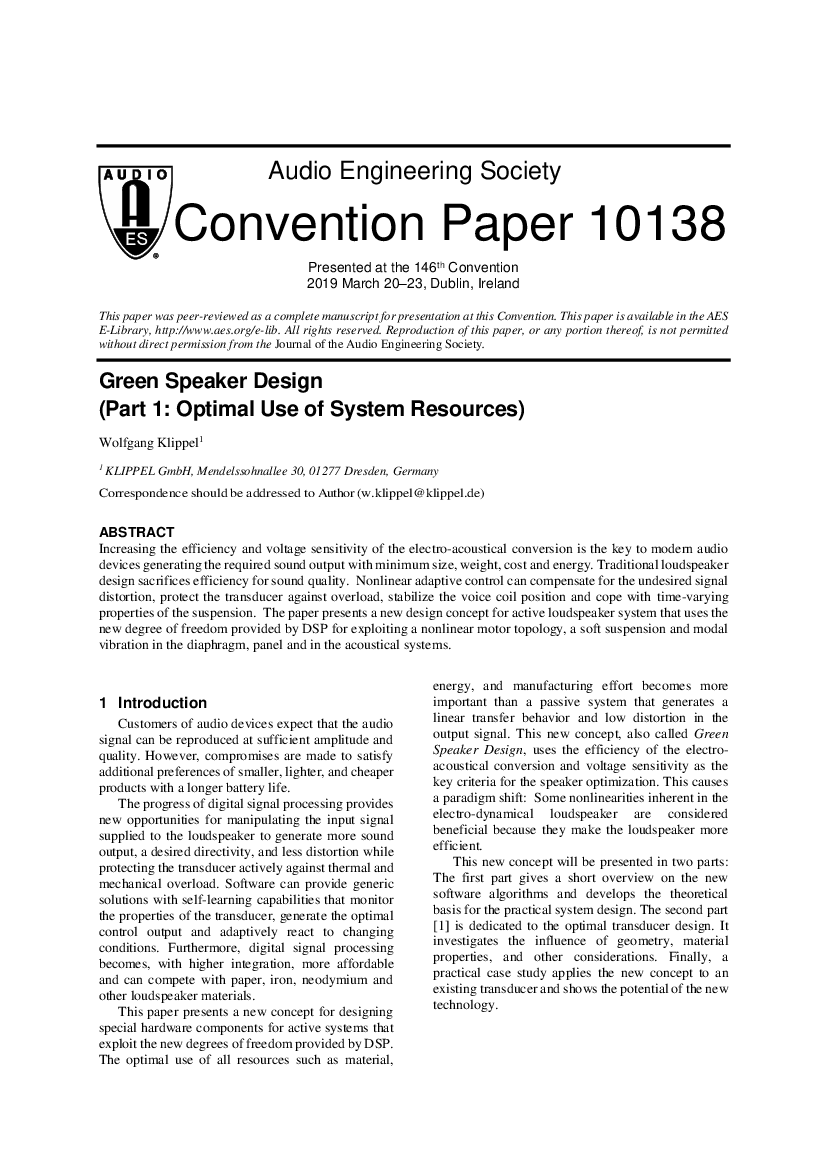Home / Publications / E-library page
You are currently logged in as an
Institutional Subscriber.
If you would like to logout,
please click on the button below.
Home / Publications / E-library page
Only AES members and Institutional Journal Subscribers can download
Increasing the efficiency and voltage sensitivity of the electro-acoustical conversion is the key to modern audio devices generating the required sound output with minimum size, weight, cost, and energy. Traditional loudspeaker design sacrifices efficiency for sound quality. Nonlinear adaptive control can compensate for the undesired signal distortion, protect the transducer against overload, stabilize the voice coil position, and cope with time-varying properties of the suspension. The paper presents a new design concept for an active loudspeaker system that uses the new degree of freedom provided by DSP for exploiting a nonlinear motor topology, a soft suspension and modal vibration in the diaphragm, panel, and in the acoustical systems.
Author (s): Klippel, Wolfgang
Affiliation:
Klippel GmbH, Dresden, Germany
(See document for exact affiliation information.)
AES Convention: 146
Paper Number:10138
Publication Date:
2019-03-06
Import into BibTeX
Session subject:
Loudspeakers: Part 2
Permalink: https://aes2.org/publications/elibrary-page/?id=20271
(801KB)
Click to purchase paper as a non-member or login as an AES member. If your company or school subscribes to the E-Library then switch to the institutional version. If you are not an AES member Join the AES. If you need to check your member status, login to the Member Portal.

Klippel, Wolfgang; 2019; Green Speaker Design (Part 1: Optimal Use of System Resources) [PDF]; Klippel GmbH, Dresden, Germany; Paper 10138; Available from: https://aes2.org/publications/elibrary-page/?id=20271
Klippel, Wolfgang; Green Speaker Design (Part 1: Optimal Use of System Resources) [PDF]; Klippel GmbH, Dresden, Germany; Paper 10138; 2019 Available: https://aes2.org/publications/elibrary-page/?id=20271